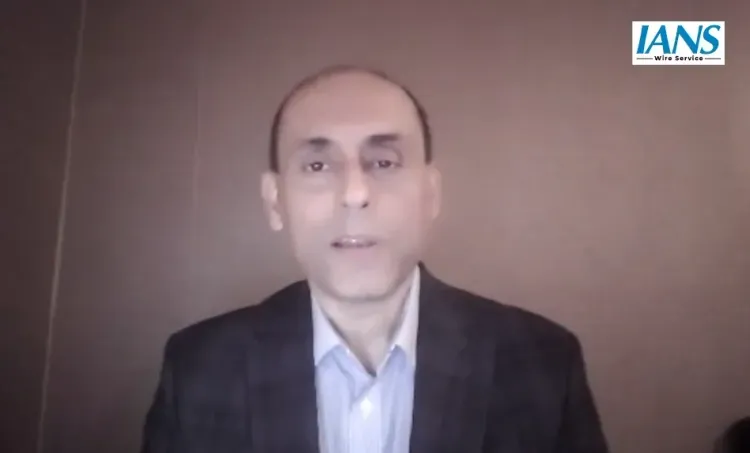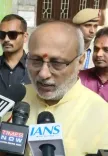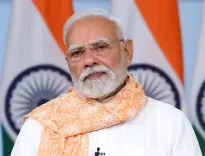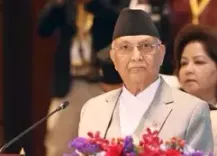PM Modi's Direct Oversight of Major Infrastructure Initiatives Accelerated Progress in Past Decade: UK Scholar

New Delhi, Dec 4 (NationPress) It is the direct involvement of Prime Minister Narendra Modi in real-time monitoring that has accelerated the completion of extensive infrastructure projects across India, thus enhancing the country's economic growth in the last decade, according to Professor Soumitra Dutta of Saïd Business School, University of Oxford.
In a special interview with IANS, the Dean and Professor remarked, “Thanks to the PRAGATI ecosystem, there is significantly more real-time oversight of the developments on the ground. Remarkably advanced drone technology and real-time sensors are utilized in the program and meetings to provide data directly to the Prime Minister.”
“This enables him to connect with the data and spot issues in real-time, often during discussions. He fosters a spirit of collaboration for the welfare of India. This leadership approach is crucial and sets a positive behavioral example,” he added.
He highlighted that historically, large infrastructure projects have faced challenges like delays, budget excesses, and other obstacles affecting their successful completion. The PRAGATI system has effectively addressed some of the significant projects that had been stalled for extended periods.
“Take for instance the Brahmaputra River in Assam, which was long deemed unbridgeable. The project for a bridge with road and rail connectivity was first sanctioned in 2002, yet a decade later, progress was minimal,” he explained.
Dutta co-authored a recently released study titled, “From Gridlock to Growth - How Leadership Enables India’s PRAGATI Ecosystem to Propel Progress.”
He elaborated on the study's purpose, stating, “The aim has always been to analyze how India's advancements in constructing national digital infrastructure have influenced the nation’s development.”
He noted that PRAGATI has effectively created a comprehensive digital framework of tools, including the Privilege and Project Monitoring Group, to consolidate information agencies and elevate information sharing. However, this alone isn’t sufficient. The Prime Minister’s active engagement has been pivotal in uniting key bureaucrats at both central and state levels to resolve conflicts.
“Typically, you would find that stakeholders collaborated to address issues even prior to the reviews, as no one wished to be questioned by the Prime Minister regarding inaction or lack of coordination,” he elucidated.
“Thus, the Prime Minister’s presence and direct involvement exert a degree of pressure on the system to resolve previously challenging issues,” he commented.
“The jam trinity of Jan Dhan, Aadhaar, and Mobile has played a crucial role in establishing a strong foundation for India,” he stated.
Dutta emphasized that since infrastructure will be a key component of government expenditure, PM Modi has effectively leveraged digital tools to monitor the progress of various troubled infrastructure initiatives in real-time. He has sought to convene essential leaders from both central and state governments monthly to tackle the complex issues hindering project execution.
“Studies suggest that for every rupee invested effectively in infrastructure, there is a GDP increase of about two and a half to three times. This improvement in GDP translates into national development. India aspires to achieve full development by 2047, marking a century post-Independence,” he clarified.
To realize these objectives, India must significantly enhance its infrastructure endeavors, extending beyond roads and power stations to include vital social initiatives, such as providing water, sanitation, and electricity to rural areas in remote regions, he noted.
“It’s essential to manage large-scale projects that encompass various societal aspects and traverse different regions of the country. Systemic change on a large scale is crucial for India to fulfill its national aspirations by 2047. The PRAGATI system fundamentally serves as a mechanism to expedite and effectively utilize the nation’s resources for implementing substantial systemic transformations,” he concluded.







